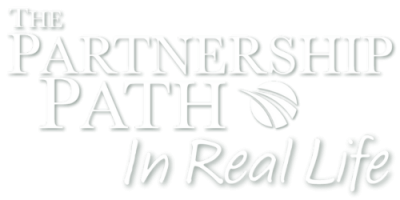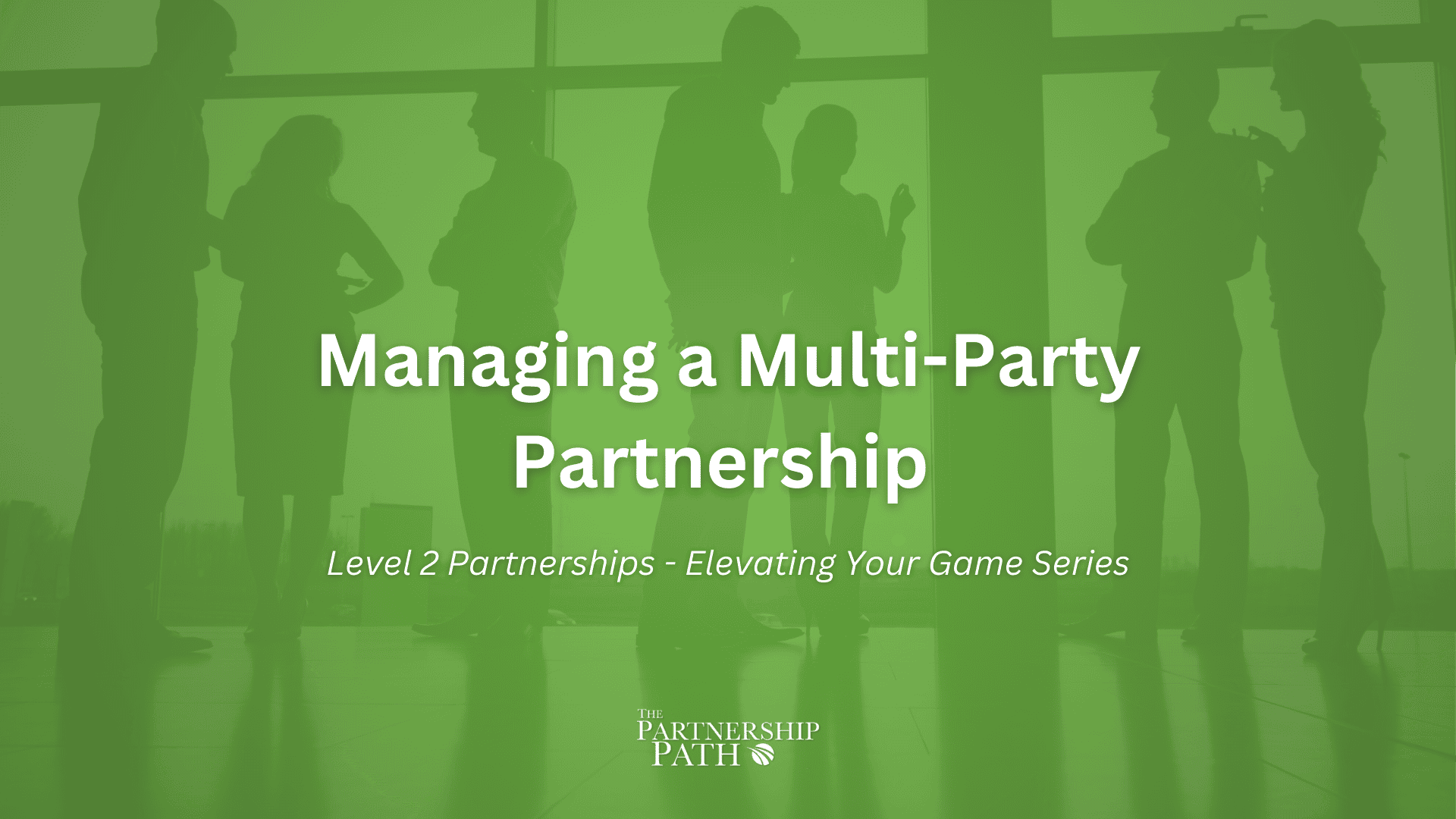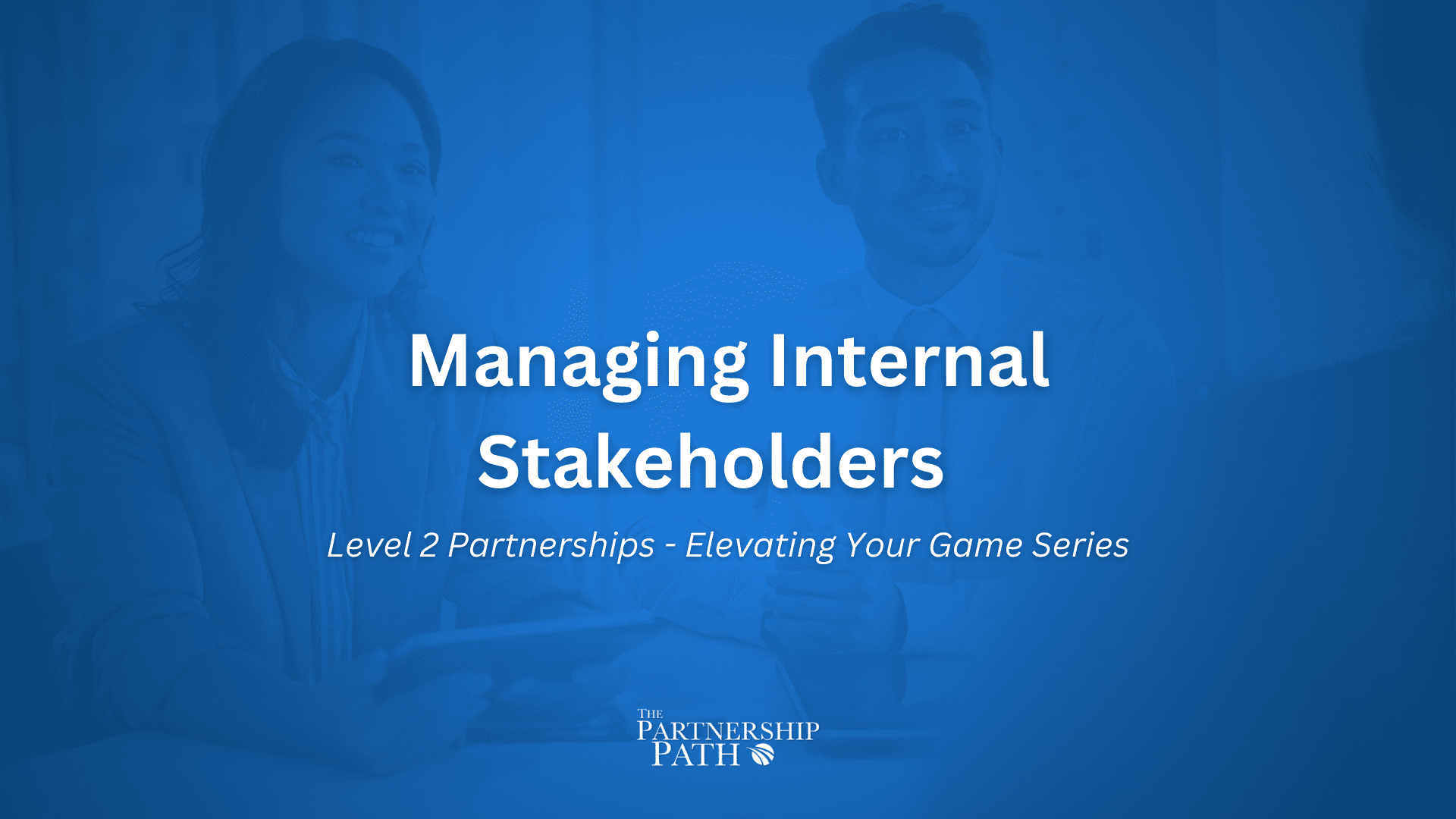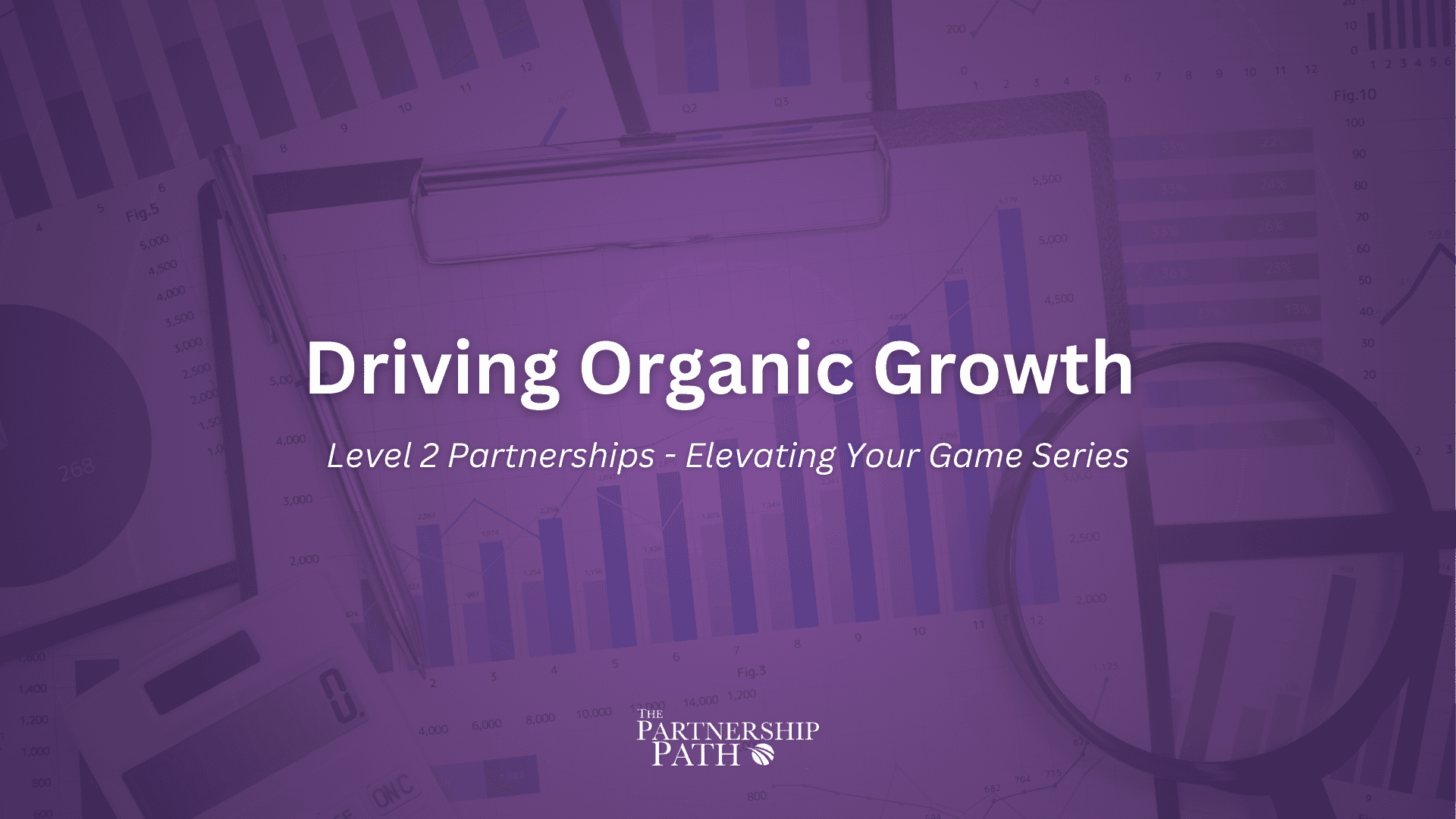Gary Cockayne at IFS on Forecast Discussions with Partners
Episode Summary
Forecasting is a cornerstone of successful business partnerships, yet it’s often seen as a tedious task. In this episode of the “Partnership Path”, Gary Cockayne, an experienced leader in channel strategy, shares his expertise on transforming forecasting from a mundane obligation into a powerful tool for growth. As someone who has significantly boosted IFS’s channel success, Gary’s insights are invaluable for anyone looking to optimize their forecasting processes and build stronger, more effective partnerships.
Transcript
John (00:00.367)
Gary, welcome back to the Partnership Path in Real Life. As I promised in our last In Real Life episode, I wanted you to come back for this one and I’m so grateful for you doing it. However, not all the same people listen every time. So I’m going to give you another chance to introduce yourself to our listening audience. Tell us a little bit about who you are, where you work and how long you’ve been working with partners. And then we’ll get in and start talking about forecasting.
Gary (00:26.704)
Thanks John. So Gary, I am based in the UK. I live just close to Heathrow Airport, west of London. I’ve had three jobs in the last quarter century. Is that good? Is that bad? I don’t know. 15 years at Oracle, five years at Infor, which is where our paths first crossed, John, and the last five years at the rocket ship that is IFS. And the last five years especially.
has really rapidly developed from VINA. Can you join us almost initially as a one -man band and develop a channel strategy? And then can we turn that strategy into a business union that is delivering incremental, profitable, good business, new logo? And that’s going really well. The net new logo for IFS in the UK and Ireland is about 40 % from the channel.
It’s really, it’s just a critical element of the business. It really is. Yeah. It’s been so well. Yeah. It is. Yeah. I mean, I literally came in, you know, was brought in after they recruited the, the equity house that owns IFS, brought in a whole new management team. You know, Darren Roos, the man at the top was the ex -sir.
John (01:26.223)
Man.
Yeah, that is huge, Gary. And that’s mostly you, right? I mean, that’s your business that you have built over these years. Yeah.
Gary (01:54.576)
UKMD of SAP is a tough guy, very clear, very focused. He said, listen, we’re going to take this really nice Swedish organization and we’re going to take these great products and sell them and get people getting value from what we do. And we’ve gone from 400 million revenue to 2 billion and 70 % of that is now annual recurring revenue. So we start the year with
John (02:19.087)
My goodness.
Gary (02:23.6)
whole heap of money in the bank and we were compounding that up all the time. So that’s me done.
John (02:28.527)
Love that. Love it. Well, congratulations on your success. I’m so thrilled for you. Having spent a lot of time with you when you were working the partner channel at Infor, it’s just so much fun to watch you go over there and then just blow it up there and just really prove that the approach you take works. It really does work. So I love that.
Gary (02:54.192)
Thank you, John. Very kind. Very kind. Thank you.
John (02:57.743)
Well, today we want to talk about forecasts. So Tony and I just did an episode on forecasting with partners. And really, I think a lot of what we tried to do in that episode was highlight the difference between talking about pipeline and talking about expectation setting of what’s really going to close when, which is kind of how I define forecasting. But I’d love to know from your perspective, when you listened to that episode, what’d you hear that
Gary (03:00.336)
Yeah.
Yeah.
John (03:26.383)
jumped out at you or kind of either validated or challenged the way you approach it.
Gary (03:28.208)
Yeah.
Gary (03:32.4)
Yeah, so yes, good point, John. I mean, I think forecasting is one of those subjects. We could talk all day about it. And so, and everybody I ever speak to has got a different view of what it is and the way that it should be handled and managed and how we use that time in a forecast meeting with a partner. So I mean, I have jotted down.
John (03:42.703)
for sure.
Gary (04:01.2)
John a few points that I personally have found really effective.
John (04:07.279)
Awesome.
And you know why I say that, Gary, because I know you’ve taken something we’ve talked about in the past and you’ve made it better. And so I can’t wait to hear these points.
Gary (04:15.408)
Yeah. Yeah. So I think that generally my experience has been that if I speak to my counterpart, the other side of the desk, the partner sales director that’s responsible in his business for our forecast, you know, they see it as a drag. They see it as is this individual trying to interrogate me? You know, I just don’t enjoy it. It’s a chore. And so
Certainly for me John, what I try and do is to just totally turn that around and to say, listen, historically it’s been like that and it’s become a chore and you’re grinding your gears and it’s a drag and you’re almost thinking how quickly can I get out of this position I’m in right now? And I’ve tried to, as I say, flip that around and say, listen, let’s use this time together.
John (05:05.103)
Right.
Gary (05:13.136)
because I’m doing a lot of these type of forecast meetings. There’s probably in reality nothing that you are faced with that I haven’t seen before. Let me seriously coach you, share with you best practice. Let me help you to overachieve against some of those objectives. But for that to happen, we’re gonna need to have some cornerstones in place, because that’s how it works in the real world, isn’t it?
So for me, my reset of how effectively you run forecasting with a partner channel is it sounds really corny and I apologize for saying it, but you just have to have integrity in it. We’ve got to have integrity that says, we’re actually in this together, you’re not an end user. I’m not selling to a customer, we’re partners, the clue’s in the name. So let’s agree from the beginning, we’re just gonna…
have high integrity, we’re gonna have regular cadence that we know is just relevant and is gonna help you. And for me, all the time, what success looks like is do we have clarity on what the next steps are to move the dial forward. So those are my three steps to heaven. I underpin all that by saying, see me as the coach, the supporter.
John (06:29.935)
Yeah.
Gary (06:39.088)
offering you this service to help you really accelerate and achieve against your objectives. Of course, bearing in mind John, that if you are working generally and in the majority of cases for a partner, you want something different to what I want. So every enterprise software company I’ve worked for, the commission plan says you’re paid on the revenue.
John (06:39.567)
Yeah.
Gary (07:08.656)
that you deliver back to the organisation. And every partner I’ve ever worked with pays its people on the margin, the profit they deliver to their business. So we want sales, but we want slightly different things. So we might, as the vendor, it might be our quarter end or our half year end, and we’re putting pressure and focus on the partner to deliver a new piece of business.
John (07:19.727)
Yeah. Yeah.
John (07:25.615)
That’s right.
Gary (07:37.712)
which might be as brutal as incentivizing them by reducing the price as one of the components. You know, it happens in the real world. And guess what? The partner guy is saying, hey, you’re giving 10 % off the revenue, but that’s 20 % of a margin. So there’s a sort of dichotomy there going on. So for me, you’ve got to come alongside in a forecast meeting and not be face to face, but come alongside and just
John (07:53.871)
Right. That’s right. Yeah.
Gary (08:06.64)
get into the deals, understand what the lay of the land is, listen to what they’ve got to say, and all the time, coach them on how I help you to moving forward. End of.
John (08:20.199)
Yeah. Yeah, look, that that concept we’ve talked about this in a couple of previous episodes where we’ve talked about the importance of number one, transparency and number two, really having an appreciation for how the different audiences are motivated or compensated. Right. Same same difference. And it’s once again, Gary, you’ve challenged my thought process of
Gary (08:32.272)
Yeah.
Gary (08:41.68)
either.
John (08:49.551)
I hadn’t really thought about that compensation issue in the realm of forecasting. How important it is that, because you’re right, as vendors, we come to the table all the time thinking, it’s all about discounting and not really thinking about how that impacts the margin or whatever it is that they are compensating their side on. And that’s going to motivate them differently.
Gary (09:13.808)
You got it? Yeah.
John (09:17.839)
Here we think given a bigger margin is going to motivate them when in fact it demotivates them. Super good insight. Like how important is it that we sit down and just get really clear with, you know, hey, look, here’s what I’m trying to do. What are you trying to do? Like what really matters to you in this process?
Gary (09:23.408)
You good?
Gary (09:34.295)
Absolutely. Absolutely. And we have had, with some of the Infor Partners, I’ve sat down with these guys are sales directors, but co -owners of the business. And we’ve just talked about what does the end game look like? What are you seeking to achieve? Because the forecast and the deals are just the vehicle to deliver what you’re seeking to achieve in your life. We might as well just be totally transparent about it, as you say.
John (09:47.023)
Yeah, that’s right.
John (09:57.679)
That’s right.
Gary (10:00.944)
Let me help you get there quicker by doing more of the good stuff. And absolutely, let’s take away the stuff that gets in the way, that is having no value, and make it cleaner, smarter, slicker, much more pleasurable to do business. But forecasting can be a drag, and it’s a necessary evil. And you’ve got to turn it into a motivation exercise of saying, you know what?
John (10:05.071)
Yeah. Yeah.
Gary (10:30.96)
I’m gonna really support you, I’m gonna really help you, I’m gonna encourage you as well. That deal two weeks ago was not where it is now. You’ve done a great job. Those steps that you’ve taken have moved that forward, which is great. So, okay, let’s think this through. What do we need to do next? So, I mean, John, it’s a wide gate doing the channel role.
It’s a wide gate, it’s a broad job because quite often the people that are running these businesses are co -owners. They are managing directors, they’re doing a multitude of roles and this is one element of it. So it’s a fantastic, it’s just a fantastic life, it really is. And I love it, as you know, I really enjoy it. Yeah.
John (10:59.599)
Yeah, that’s right.
John (11:18.479)
Yeah, yeah.
Well, you’ve found your calling for sure, right? All this experience that you brought to the table has led you to this point where you just shine in this role. I’m curious, you know, one of the things that sort of is sort of my pet peeve around forecasting is this concept of percentages. When we, when organizations want a partner or a sales rep or whoever to put a percentage on, what’s the…
What’s the percentage of close, right? And like, deals either close or they don’t, right? It’s either, you know, it’s either yes or no. Yeah, you don’t get 90 % of a deal. You don’t get 70 % of a deal. And so give me your thoughts on that. How do you work with that with partners? Cause a lot of partners come to the table having been trained by the vendors they work with that this percentage thing is the language.
Gary (11:57.616)
It’s a binary, it’s a binary. Yeah.
Gary (12:13.008)
Yeah, correct. Yeah. So John, this is, you know, I’m enjoying this because I think we do need to challenge the way that historically we’ve defaulted to work in. And as you say, the percentages, the probability, the win rate, the 10, 30, 50, you know, all that stuff. So, you know, we do need to challenge that.
because it’s just become a bit sort of a tick box exercise. And I continually say to the sellers in my partners that are delivering and trying to net new logos, I continually remind them of something they know, but they need to hear it again and again and again. It’s this, it’s so expensive if you’re selling enterprise software to come second because you get nothing.
Winner takes all. There’s no silver or bronze. You get the gold medal or you get nothing. So I continually say, even in a forecast call, sometimes the best course of action is to actually qualify out because you are chasing something that you may not win. And looking at all this, hey, maybe, I don’t know, is it time to say we’re not going to invest any more in that?
John (13:13.967)
Yes, yeah, that’s right.
John (13:32.239)
Yeah, that’s exactly right. Yeah.
Gary (13:42.832)
because there’s no coming, we were close, we were close runners up. You got nothing. You might as well come fifth. It doesn’t matter, you got nothing. So, you know, there’s some, I do agree with you, challenging this whole style of just thinking probability doesn’t work.
John (13:43.247)
That’s right.
John (13:49.199)
Yeah. Yeah.
John (14:00.335)
Yeah. I’ve got Gary, I’ve got another, I have a client that I just recently shared with me that a deal they’ve been working a massive enterprise deal that they’ve been working has been forecasted by that rep every quarter for the last four quarters. And it just slipped.
from Q2, end of June, to Q3. And my response is, you know, are you sure that’s a deal? You know, like I know you think you’re at the end, but to your point, it’s winner take all guys. And like, if it keeps getting postponed, something’s not right here. Like this is not really a deal. So to your point, I don’t care. It’s probably been at 90 % probability to close.
Gary (14:29.808)
Yeah.
Gary (14:40.208)
You bet.
John (14:58.095)
for a year and a half.
Gary (14:59.952)
I’ve seen it so many times, loads of times where people are… Yeah, absolutely. So it’s just sometimes best, as I said, to get ugly early in my view. And we’re not gonna win this one. Nobody, I guess, has got 100 % market share, apart from Microsoft on desktop, I guess.
John (15:10.223)
Just crazy, crazy times.
Gary (15:28.592)
In the real world, qualifying out is as important as qualifying in.
John (15:34.415)
That’s right.
Yeah, the language we use around that is risk, right? About really helping reps and partners start to evaluate not just where the risk is, but how heavy the collection of risk is. And at some point it gets so heavy that you should be able to acknowledge, I’m never going to win this one. And so I should qualify out because there’s just, there’s way too many things. I can’t, I just can’t overcome all of them.
Gary (15:40.368)
You bet. Yeah.
Gary (16:02.096)
You bet.
John (16:06.671)
But too many, especially when we’re talking about in your business, when we’re talking about these business owners whose business depends on that revenue, they can sometimes make poor choices and they need someone like you to help them sort of guide them through that process of it’s actually okay to walk away and spend the time you would have spent losing that deal, winning a different one.
Gary (16:33.104)
Yeah. And of course, John, you’re this guy that, you know, four quarters running it slipped. You know, he’s obviously highly invested emotionally in that transaction. And, you know, it’s hard. It’s not easy, but you sometimes just got to, you know, it’s horrible, but just say, you know what, on this occasion, no more. Or let’s, let’s wheel somebody into a fresh set of eyes on it.
John (16:43.695)
Right. That’s right. That’s right.
John (16:57.839)
Yeah. Yeah.
Gary (17:03.056)
That works quite often.
John (17:03.567)
Right, and let’s see what someone who’s not emotionally invested, how they would evaluate it. And if they say, there’s no way I’d keep doing this, then that’s helpful, right? All right, Gary, so we’re at time. So let me just ask you one last thing. Any last pointers you have for our listening audience? This is actually the end of a season for us. We’re ending our go -to -market -with -partners season. And so any last advice for our listeners on
Gary (17:08.112)
Correct. Yeah.
John (17:32.975)
how to be good at forecasting with partners.
Gary (17:36.784)
Yep, I think there’s an expression that has been used for decades in the UK, and I’m not sure John if it will translate or if it works, I’ll use it, but there used to be a sort of saying, yeah, I gave him or her a damn good talking to. I gave him a damn good talking to. I’ve told them how it’s been done. And I’ve sort of…
John (17:59.087)
Right, yeah, that translates.
Gary (18:03.6)
try to turn that around in the forecasting meetings by saying, I’m going to give you a damn good listening to.
I’m gonna give you, I’m gonna sit here, I’m not gonna interrupt you, tell me about it. Let’s just take a few moments, just take it from the top, where are we at? And I’m just gonna listen. I will make notes, because that’s the way I’m wired, and that’s why I’m comfortable with, if I write it down, I get security from that. But let’s listen, I wanna understand, you tell me where we’re at. And if I can, after that, contribute something that will accelerate you.
Of course that’s brilliant. But together, together we’ll make it work.
John (18:47.151)
Gary, I wanna have t -shirts made up that have that written across the front of them. I’m gonna give you a damn good listening to, I love that. That’s a great season ender, man, thank you. Thanks for coming on the show, Gary. I’m really glad to have you here. Appreciate all of the wisdom you’re sharing with our listening audience. Thanks so much.
Gary (18:58.608)
Welcome. Thank you, John.
Gary (19:06.48)
Very welcome, thank you.
Key Takeaways
- Transforming Forecasting Meetings: Gary emphasizes the importance of changing the perception of forecasting from a chore to an opportunity for collaboration and growth. By adopting a supportive, coaching approach, you can make these meetings more productive and engaging.
- The Integrity of Forecasting: Building trust and maintaining high integrity in forecasting processes are crucial. Gary advocates for transparency and alignment in goals to foster a collaborative partnership.
- The Importance of Qualifying Out: Gary highlights that qualifying out of deals that are unlikely to close is as important as qualifying in. It helps partners focus their efforts on opportunities with a higher likelihood of success.



